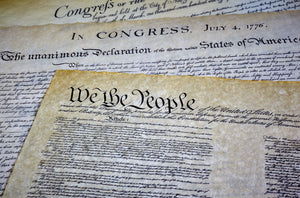Owning a gun is a right and a privilege but there has been no shortage of laws passed to govern how one can purchase and use their firearms. These laws concern things like taxation for the selling and transporting of guns, which types of guns are considered illegal, and outlining the proper procedure for buying a gun, including mandatory background checks. If you have been considering buying a gun or a few gun accessories, it’s important to bear in mind the laws against which you’ll be held.
Lately, the national conversation regarding gun regulation has been ramping up; a lot has been spoken about what has been passed, what should be passed, and what is currently being voted on. It is understandable that one would find the progression of these gun laws hard to follow. There are a few ways to keep up on which laws are currently in effect, including re-certifying in a gun safety course, visiting your local state’s website, and keeping tabs on the latest from gun lobbyists such as the NRA﹘specifically their Institute for Legislative Action (ILM).
The Law of the Land
When looking at the state of gun laws in America, it’s perhaps easiest to take it all in from the beginning and chart the progression of legislation to the present day. What follows is a brief timeline of laws that have bearing on gun ownership today. For customers of 45 Blast, these are the most relevant standards currently being enforced.
- 1791: The Bill of Rights was ratified on December 15, 1791, including the Second Amendment which states that “the right of the people to keep and bear Arms shall not be infringed.” As far as gun ownership goes in the United States, this line in the Constitution represents the bedrock of all our rights.
- 1934: President Franklin Roosevelt created the National Firearms Act (NFA) which imposed rigorous taxes on the manufacturing, selling, and transportation of certain infamous “gang weaponry” such as sawed-off shotguns, muzzle silencers, and fully automatic machine guns.
- 1968: The creation of the Gun Control Act (GCA) was spearheaded by President Lydon Johnson following the assassination of John F. Kennedy. Built upon the bones of the Federal Firearms Act that required gun merchants to hold a federal license, the GCA made further stipulations as to who was eligible to purchase a gun (the person must be at least 21, with no history of criminality and mental instability), made the selling of bombs illegal, and ensured that every firearm imported into the country had a serial number.
- 1993: President Clinton amended the GCA to require that all background checks must be completed before the purchase of a firearm. As such, the National Instant Criminal Background Check System (NICS) was established.
- 1994: President Clinton moved again to enact sweeping legislation to limit the types of guns that were available for purchase. Under his Public Safety and Recreational Firearms Use Protection Act, certain semiautomatic firearms﹘both those considered assault weapons and “assault weapon adjacent”﹘like AR-15s and TEC-9s were banned from being sold for 10 years. This Act has not been renewed, despite multiple attempts from the opposition.
Gun Accessories for the Lawful
At 45 Blast, we believe that the lawful ownership, possession, and use of a firearm is not only a great way to protect one’s family and community but a positive sport that teaches responsibility and care. The joy we get from our guns is what makes the manufacture and sale of premier gun accessories a point of pride for everyone at 45 Blast. If you appreciate customizing your firearms to help them reach the pinnacle of their capabilities, take a look at our shop and put your order in today.


